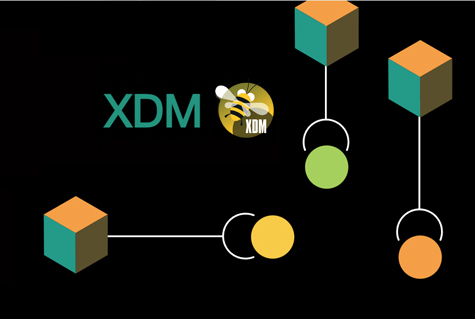Data masking is a crucial process in software testing, particularly in the procurement of test data (TDM). It involves altering data to protect sensitive information while maintaining the data’s usability for testing purposes. Here is a look at how effective data masking can improve software testing.
Ensuring Compliance with Data Privacy Regulations
One of the primary goals of data masking is to ensure compliance with data privacy regulations such as GDPR, HIPAA, and CCPA. These regulations mandate the protection of Personally Identifiable Information (PII) and sensitive data. By masking data, companies can use real-like data in testing environments without risking data breaches or non-compliance penalties.
XDM’s Masking Tool enables you to quickly initiate and deploy a personalized, adaptable, and scalable masking solution for all application data, ensuring compliance with personal data regulations such as GDPR, HIPAA, etc.
Data That Looks Like Real Data
Effective data masking transforms sensitive data into something that looks and feels like real data. This is essential because testing with realistic data sets ensures the software behaves as expected in a real-world scenario. The integrity and consistency of the data must be maintained to avoid skewed results and to provide a reliable basis for testing.
Utilize all data available within your applications and mask it so it looks like it was never changed. Employ real names, addresses, and banking information with XDM using look-up tables for authentic real-world data.
Consistent Data Masking Across All Platforms
Consistency in data masking is key to maintaining data integrity. Masked data must be uniformly altered across all platforms and environments to ensure that the relationships within the data remain intact. This consistency is vital for accurate testing and reliable results.
XDM’s masking routines can be applied to various types of data, ranging from cloud storage solutions to relational database products and legacy VSAM clusters. This allows for consistent masking across all platforms.
Detecting PII Data
Before masking, it’s essential to detect and identify all PII data within a dataset. Advanced detection tools like XDM can scan databases to locate sensitive information, ensuring nothing is overlooked. This step is crucial in enforcing comprehensive data masking.
Scan your application data for PII, such as names and addresses, using dictionary and expression-based algorithms. These algorithms support common tasks as well as specific requirements.
Enforcing Masking
Enforcing masking policies ensures that all identified PII data is effectively masked. This process involves applying pre-defined rules and algorithms to modify the data, rendering it anonymized and safe for use in testing environments. Enforcing these rules consistently is vital for compliance and security.
With XDM centralized configuration on a data source ensures that all data is masked before being copied, enhancing security and compliance measures. Object-level, ACL-based permission management authorizes the configuration and modification of the masking setup.
Consistent Masking Across All Data Operations
Masking should not be a one-time process but should be applied consistently across all data operations. This includes data transfers, backups, and any environment where the data is replicated. Consistent masking ensures that sensitive information remains protected at all times.
With XDM application data can be masked consistently, whether in-place, alongside bulk copies, or when sub-setting specific business objects.
Out-of-the-Box Look-Up Tables and Modification Methods
Out-of-the-box look-up tables and modification methods offer quick and reliable solutions for data masking. These predefined tables and methods provide standard practices for altering data, making the process more efficient and less prone to errors.
XDM comes with preinstalled modification methods and look-up tables for names, multinational addresses with matching geolocation data, banking information, and more, enabling quick setup of a masking configuration in just a few hours. Hashing algorithms ensure a deterministic, non-reversible selection of entries in the look-up tables.
Create Your Own Look-Up Tables and Modification Methods
Customization is also crucial. Organizations should have the flexibility to create their own look-up tables and modification methods tailored to their specific needs. This customization allows for more precise and relevant data masking, ensuring that the masked data meets the unique requirements of different testing scenarios.
With XDM you can create individual look-up tables based on the original application data to address specific data scenarios in the masked data. JavaScript or Groovy scripts can also be used to create customized modification methods. Each row’s modification can be toggled based on the data in all columns of the row. Additionally, entire rows can be removed.
Customize Masking Divergence
Customizing masking divergence allows for varying the masked data to suit different contexts while maintaining the overall integrity of the data. This divergence can prevent patterns that could potentially be reverse-engineered, enhancing data security.
With XDM the level of divergence from real-world data can be configured for all types of data. For example, should masked first names align with the gender of the person? Should addresses be located in the same city, state, or country? Should personal data of individuals from low-density regions be considered within a broader geographic region incl neighboring areas?
Generate Data That Feels Real
Beyond just looking real, masked data should also feel real in terms of structure and format. This realism ensures that the software testing environment closely mimics actual usage conditions, leading to more accurate and reliable test results.
Generate data using XDM’s row multiplication functionality of the masking engine. Create realistic data for single tables, services, or CSV files based on provided look-up tables. Construct complete test scenarios by multiplying business objects across multiple tables, generating new ID values, and maintaining referential integrity.
Collaborate Easily
Effective data masking facilitates easy collaboration among development, testing, and compliance teams. When everyone works with consistent, secure data, it enhances cooperation and streamlines the testing process.
XDM makes collaboration among different users easy by separating the implementation of individual modification methods from the assignment of personal information attributes. Data masking can then be applied in-place or during any data provision process.
Audits
Finally, maintaining a record of all data masking activities through audits is essential for compliance and transparency. Audits provide a trail of all modifications, ensuring accountability and enabling organizations to demonstrate compliance with data privacy regulations.
XDM provides overview reports on data provisioning and data masking. Effectively handle PII data across various test environments or at an individual level, including the option to selectively delete PII data for specific customers.
Conclusion
In conclusion, data masking is an indispensable tool in the realm of software testing, ensuring that sensitive data remains protected while providing realistic and reliable test data. By adhering to best practices in data masking, organizations can maintain compliance, enhance security, and improve the overall quality of their software products.
With XDM from UBS Hainer, the requirements for a compliant data masking process are met at a high and convenient level. This is an important prerequisite for professional and agile test data automation.


